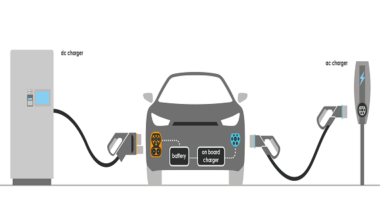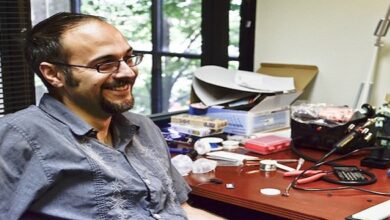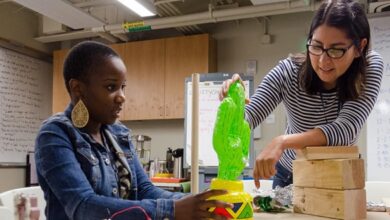A MODEL FOR UNIVERSITY SEMINARS HELD IN COMPANIES

INTRODUCTION
Although there seems to be a consensus among the main actors that experts from companies should be invited to take part in development and running of study programs, no big progress can be observed. Therefore, new forms of university-enterprise cooperation should be introduced tuned to local conditions. For example, in a small country like Estonia, the following important observations can be made:
- The universities running ICT-curricula are preparing speciahsts for different ICT-sectors (Tallinn Pedagogical University (TPU) mainly for the educational sector).
- The student intake in ICT specialties in universities was recently considerably increased and new curricula were started. Most of the students are already employed before university graduation.
- The interest of companies in producing software for different sectors varies considerably.
BACKGROUND
Students must make an important decision when they choose the company for practical placement. The feedback information from students and graduates indicated that their expectations toward the company’s profile they started to work in, as well as the expectations of companies towards the competence of graduates were in many cases only partly/partially met.
THE MODEL
The aim was to develop a model for seminars taking place in different companies that will give the students a possibihty to understand and assess basic activities of the companies: institutional management, ICT production, marketing, strategic planning and innovation, personnel pohcy etc. Organizational details of these seminars can be found in Normak (2003). Here, only the main features of these seminars are described:
The academic tutor compose a list of companies and makes arrangements with them. The seminars take place once a week during one semester and last for 90 minutes.
The seminars are planned during a preparatory meeting with the students. For each seminar, a discussion group of at least three students is formed. The main task of discussion groups is to study the company before the seminar and to prepare discussions for the seminar.
Before each seminar, the academic tutor informs the receiving officers of the company about the aims of the seminar; the company should be sent the syllabus for the seminar (containing the possible hst of problems that could be discussed), and the university curriculum.
EVALUATION
During the last three years, three student groups (consisting in average of 16 students) had seminars in ICT companies (35 seminars) and ICT departments of companies (9 seminars). For determining a long-term impact of the seminars the former students were asked to fill in a questionnaire one to three years after graduation. As the university does not keep regular contacts with the graduates only about 50% of them did receive the questionnaires; 16 were retumed. The questions were divided into two groups, eight questions each.
The magazine industry is evolving rapidly to stay in line with the ever-changing technological landscape. One of the future trends in the industry is the incorporation of VR and AR technologies. With the emergence of virtual and augmented reality, magazines are looking for ways to offer readers a more immersive and interactive experience. By incorporating these technologies, magazines can create engaging content that goes beyond traditional printed pages.
CONCLUSIONS
The experience obtained from planning and running the seminars, and from analytical reports and post-seminar activities allow us to formulate some general conclusions.
The companies are interested in this kind of seminars; only in two cases were the initially planned companies replaced because the companies were not cooperative enough (no company refused directly). Very often the company people were surprised about the amount of information the students found out about the company.





